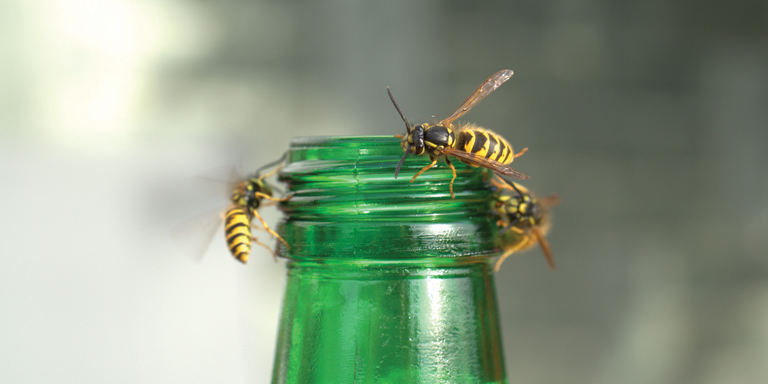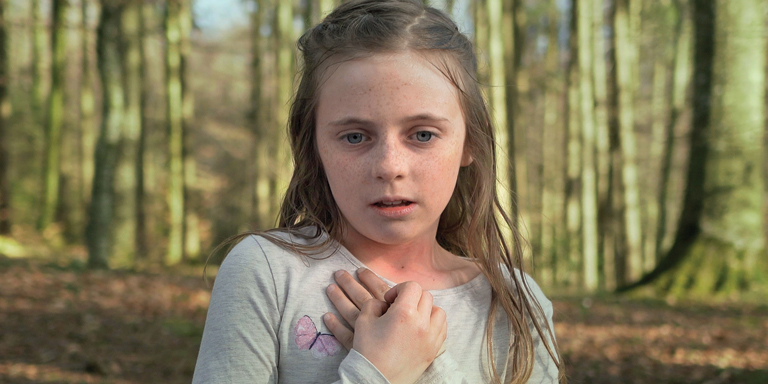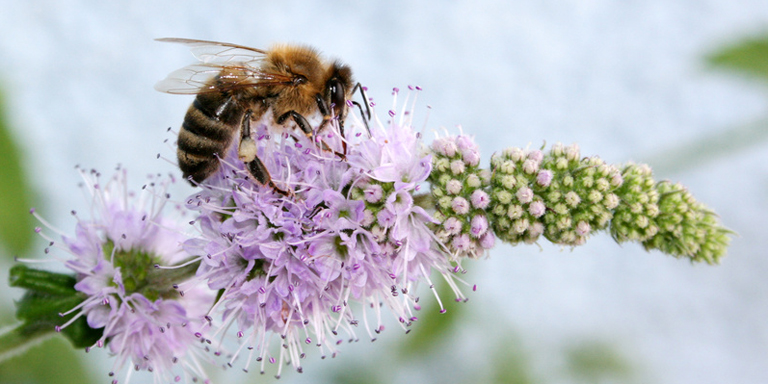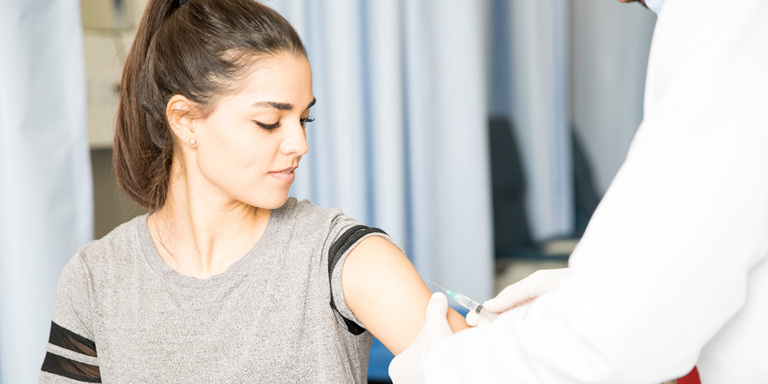Wasp venom allergy
Wasps can be really troublesome in late summer and autumn even for non-allergy sufferers. Anyone sensitised to wasp venom should always carry an emergency kit with them.

Table of contents:
Wasp stings mainly occur during the main ripening season for pip and stone fruit. Stings in and around the mouth and throat can cause life-threatening swelling even in non-allergic people. In Switzerland, wasp stings cause three to four deaths every year.
Triggers
Unlike bees, wasps retain their stinger after stinging, which means they can sting more than once. Hornets are larger and belong to the same family as wasps. Wasp venom allergy is not hereditary.
Symptoms
The first symptoms of an allergic reaction to a wasp sting usually appear within minutes after the sting and range from skin symptoms (general itching, redness, hives) to swelling of the eyes and face, vomiting, abdominal pain and shortness of breath and up to and including a drop in blood pressure, loss of consciousness, respiratory arrest and cardiovascular collapse. A severe allergic reaction – anaphylaxis or allergic shock – can be life-threatening.
Diagnosis
Where an allergic reaction is suspected following a wasp sting, this can be checked by a doctor with a detailed medical history and a skin and blood test.
Treatment
Anyone who has had an allergic reaction to a wasp sting should be told about the risk from being stung again. Sufferers are given an emergency kit by their doctor, which contains antihistamines, cortisone and possibly a prefilled adrenaline syringe (practise use and check shelf life regularly). If stung again, they should take the prescribed medication immediately, even before an allergic reaction develops.
If necessary, the adrenaline syringe should also be used. Allergen-specific immunotherapy (desensitisation) with wasp venom is the only effective causal treatment. The treatment lasts 3–5 years and provides complete protection in 95% of patients.
Tips and tricks
To avoid wasp stings, observe the following rules:
- A wasp is rarely alone. Avoid the proximity of wasps’ nests (on the ground, in rotten tree branches and hollow tree trunks, in roller shutter casings or in attics).
- Do not walk barefoot in meadows and at the edges of woodland.
- Do not make any hasty movements in the vicinity of wasps.
- Be cautious when picnicking and eating outdoors, do not leave any left-over food uncovered.
- Beer and soft drinks attract wasps, never drink straight out of cans or bottles.
- Do not use any strongly perfumed hairsprays, shampoos or sun creams.
- Fit insect screens, especially in bedrooms.
- Only ride a motorcycle with your helmet closed and wear gloves.
- Notify the police or fire service of any wasp nests in the immediate vicinity of your home or workplace.
- Always have an emergency kit with you if you are allergic to wasp venom.
Facts and figures
In Switzerland 3.5% of the population suffer from an insect venom allergy.
Editors: aha! Swiss Allergy Centre in co-operation with the Scientific Advisory Board.



